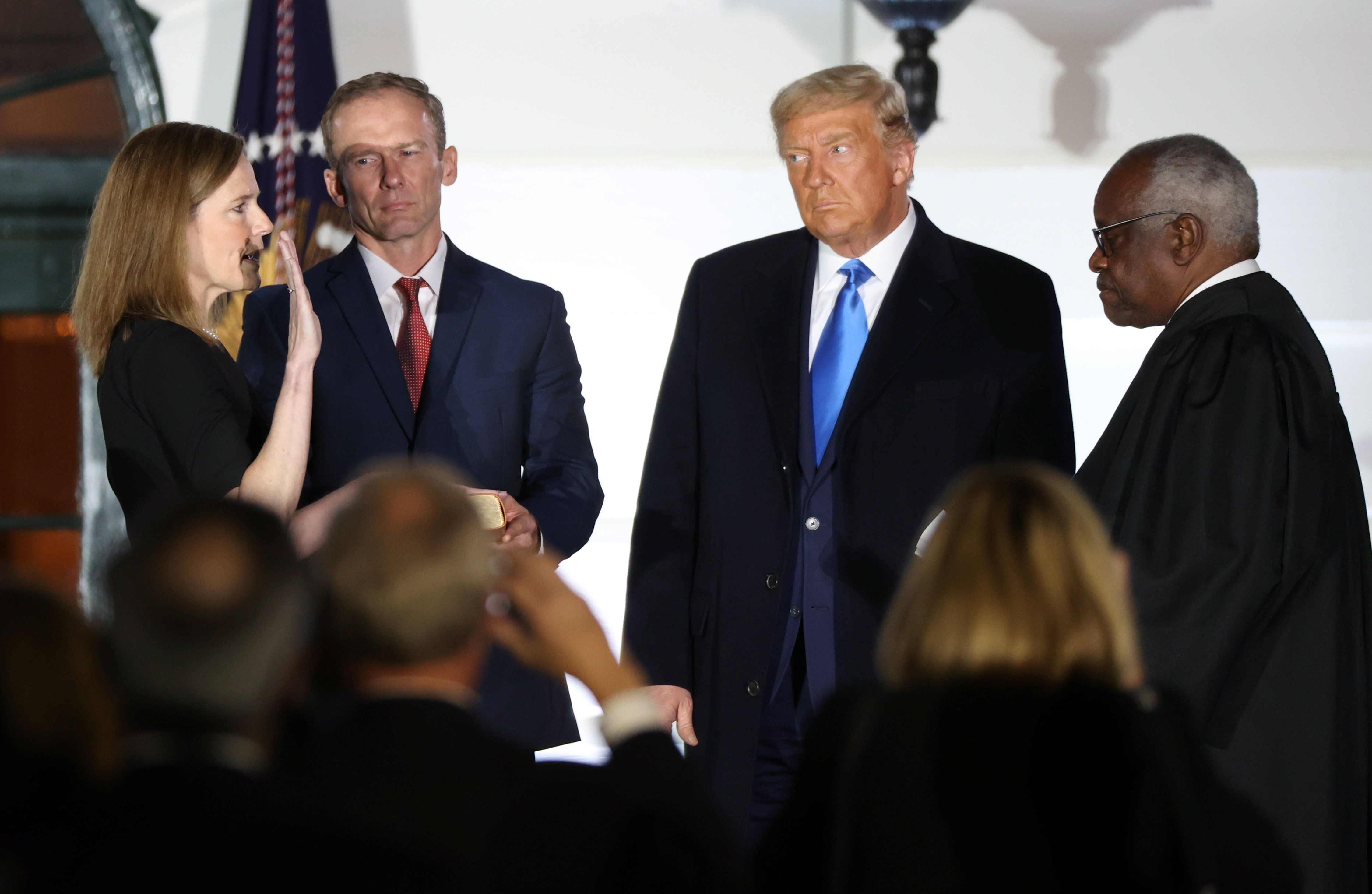US & Canada
October 27, 2020
SCOTUS battle rages on: In a major victory for US President Donald Trump just a week out from the presidential election, the Republican-controlled Senate confirmed Judge Amy Coney Barrett to the Supreme Court, who was then swiftly sworn into office at a nighttime ceremony at the White House. Barrett, a conservative who was tapped to replace deceased Justice Ruth Bader Ginsburg just 46 days out from the presidential election, is the first Supreme Court justice to be confirmed in over 150 years without the support of a single member of the minority party. Democrats are furious, saying that Republicans — who blocked Obama from filling a Supreme Court vacancy in 2016, arguing at the time that the seat should only be filled after the next US president was elected some nine months later — have cynically backtracked on their own assertions. Democrats have also called the rushed confirmation process "illegitimate." Pressure is now mounting on Joe Biden (specifically, from the progressive wing of his party) to expand the size of the Supreme Court should he win in November, so Democrats can install liberal justices to offset the crucial court's hard-right shift.
Evo Morales' likely return: A Bolivian judge on Tuesday dismissed an arrest warrant for alleged sedition and terrorism against former president Evo Morales, paving the way for Morales, who led the country from 2006 to 2019, to return to Bolivia without fear of detention. Although the warrant was thrown out over a technicality, the investigation against Morales continues. If Morales does return, he'll still likely be expected to show up in court to face the charges, which stem from his alleged role organizing roadblocks in the wake of the disputed 2019 election. Morales initially claimed victory in last year's vote, but the military forced him to resign amid allegations of vote-buying and civil unrest. He has since lived in self-imposed exile in Mexico and Argentina, but vowed to return if Luis Arce, the candidate aligned with his socialist MAS party, won the October 18 October presidential election (he did, in a landslide). Now that Morales will likely be back soon, we're watching to see how his physical presence in Bolivia will affect Arce's first moves as president, given how the new president — a UK-educated economist who seeks to end Bolivian political polarization — distanced himself from Morales during the campaign.
More For You
America’s new National Security Strategy confirms what Europeans have feared for months: Washington now sees a strong, unified European Union as a problem to be solved, not an ally to be supported.
Most Popular
Sponsored posts
The power of sports
What's Good Wednesdays
What’s Good Wednesdays™, December 10, 2025
Walmart sponsored posts
Walmart's $350 billion commitment to American jobs
In this episode of Tools and Weapons, Microsoft Vice Chair and President Brad Smith sits down with Ed Policy, President and CEO of the Green Bay Packers, to discuss how purpose-driven leadership and innovation are shaping the future of one of the world’s most iconic sports franchises. Ed shares how technology and community-focused initiatives, from Titletown Tech to health and safety innovations on the field, are transforming not just the game of football, but the economy and culture of Green Bay itself. He explains how combining strategic vision with investment in local startups is keeping talent in the Midwest and creating opportunities that extend far beyond Lambeau Field.
Subscribe and find new episodes monthly, wherever you listen to podcasts.
Members of security forces stand guard outside a polliong station, a week late in a special election, after the local governing party kept voting closed on election day, amid accusations of sabotage and fraud, in a presidential race still too close to call as counting continues, in San Antonio de Flores, Honduras, December 7, 2025.
REUTERS/Leonel Estrada
More than a week after Hondurans cast their ballots in a presidential election, the country is still stuck in a potentially-dangerous post-election fog.
© 2025 GZERO Media. All Rights Reserved | A Eurasia Group media company.
